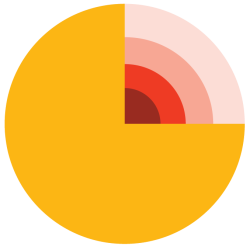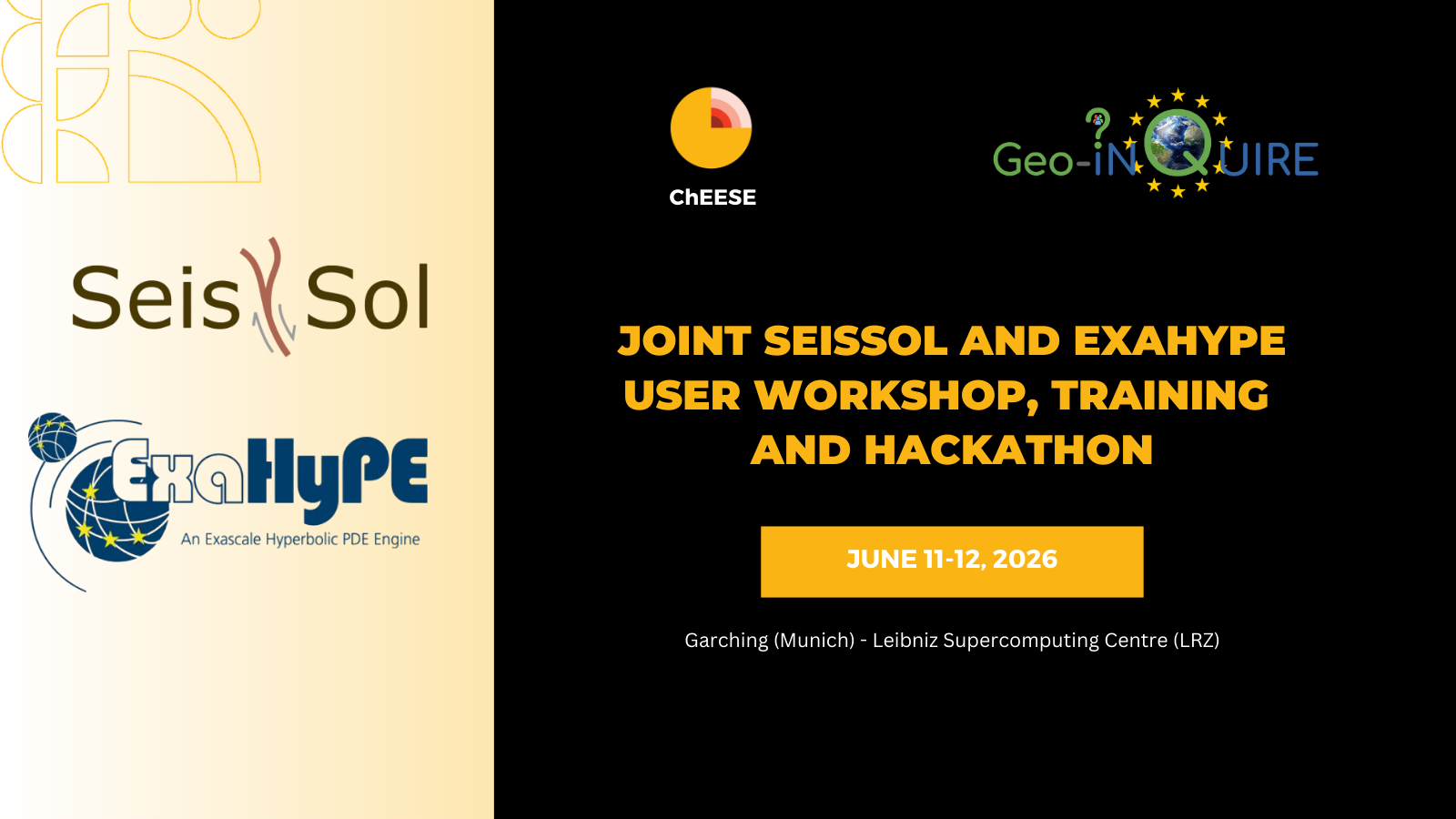Training · October 31, 2025
Computational Methods in Geophysics

Date: 31 October, 2025
Venue: Barcelona Supercomputing Center – Plaça Eusebi Güell, 1-3 Barcelona (Spain)
Target group: MSc/PhD students and researchers interested in computational / numerical methods applied to geophysics (seismology and underwater acoustics).
Cost: There is no registration fee. The attendees would need to cover the expenses for travel, accommodation and meals.
Register: https://form.typeform.com/to/K08ZSSE2
Objective: This course aims at training students in numerical methods applied to solve partial differential equations in geophysics. Today many researchers use community codes (e.g. developed by CHEESE) often with little training in the underlying mathematical methods. The goal is to provide a basic understanding of a variety of numerical methods used in geophysics today. While we use the elastic (acoustic) wave equation (mostly in 1D) to illustrate the concepts, the knowledge can be easily transferred to other systems in geophysics. The course is “practical” in the sense that we provide the link from the mathematical algorithm to the actual code in Python using Jupyter notebooks.
The course format will be lectures interspersed (time-permitting) with simple theoretical exercises, comprehension questions, and Jupyter notebook exercises. The methods discussed will be the finite-difference method, the pseudospectral method, linear and spectral elements (and – if there is interest – the finite volume and the discontinuous Galerkin method). Note that the purpose is NOT to discuss any specific community codes, rather to provide information on what is under the hood and how to avoid errors and – for example – which methods are favorable for complex, geometries, topography, problems with difficult boundary conditions, parallel computers, etc.
Note: Clearly, a 1-day course can only provide the basics of the methods. However, additional material (slides, chapters, Jupyter notebooks) will be provided to further deepen specific aspects.
Requirements: Basic understanding of partial differential equations, Fourier transform, linear algebra, polynomials. Bring your own laptop. Simple programming exercises with Python in Jupyter notebooks.
Learning Outcomes: Students will learn how to solve a simple differential equation by different numerical methods. They will learn the specific flavor of the various methods and their application domains (mostly in seismology).
Academic Staff:
- Prof. Dr. Heiner Igel (LMU Munich): Heiner Igel is Professor of Seismology at LMU. His research focuses on the study of seismic waves generated by earthquakes and other processes. He develops calculation methods on the basis of which he simulates earthquakes and associated seismic wave propagation. He is an expert in the field of “rotational seismology”.
IP notice: N/A
Further information
- Igel, H. Computational Seismology: A Practical Introduction, (2016) Oxford University Press.
- Github project of a previous 3-day short course: https://github.com/heinerigel/IGPP_ShortCourse_2022
- Executable Jupyter notebooks accessible at www.seismo-live.org
- COURSERA online course on the material (>26000 registered students) accessible here: https://www.coursera.org/learn/computers-waves-simulations
Organisers: ChEESE CoE / Geo-Inquire / NCC Spain / NCC Italy / NCC Portugal / NCC Türkiye



